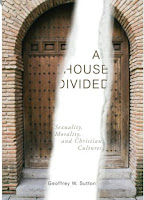Anyone who has read the Bible knows about the many wives of the leaders of Israel. Names like Abraham and Jacob come to mind along with King David and King Solomon. Polygamy continues to be an accepted practice in the world though recent data from Pew Research identified it as rare.In his review of the survey data, Kramer (2020) reported polygamous relationships were present for only 2% of the world population. Such relationships exist in the US but they have been illegal since 1882. A look at the Pew data indicate two nations where Christian polygamy is over 20%: Burkina Faso 24% and Chad 21%. Several countries had rates of polygamy above 20% among Muslims.
What's happening in the US? In the past, only a small number of Americans supported polygamy. For example, the 2003 Gallup poll reported 7% of respondents considered polygamy to be morally acceptable. But in 2020, the percentage rose to 20% or, 1 in 5 Americans think polygamy is morally acceptable.
Bible scholars vary in their interpretation of the text. Obviously, polygamy was present and the practice was not outlawed or counted as a sin. The practice continued among Jews during the Christian era. And as we have seen, some Christians continue the practice. However, the majority of Christian groups consider a Christian marriage to be between one man and one woman.
Polygamy and Behavioral Science
From the perspective of psychological science, we might wonder why such plural relationships existed in contrast to male-female monogamy.
Humans are different from other mammals including primates in primarily practicing social monogamy. From a physical perspective, the size of human males to females is a 1.15 dimorphism ratio (based on height and weight). In contrast, highly polygynous mammals where males have a harem, the dimorphism numbers are large. For example, male sea lions are three times as heavy as females (Scheidel, 2008)
From a scientific perspective, the more common form of plural marriage, polygyny (multiple wives) has been explained as a function of female mate choice based on an interaction of the degree of economic resources among men and the degree of power or influence women had in a society. That is, women having little socioeconomic power would prefer to share the resources of a wealthy man than have full access to a poor man. For a more detailed review of monogamy and polygynous relationships, see Schacht and Kramer (2019).
Some draw attention to the way people lived when lifelong heterosexual monogamy was the only lawful way for adults to form an intimate relationship and have a family. The topic is quite complex; however, we know that wealthy men had mistresses or slaves and sired unknown numbers of illegitimate children in cultures where women and children had few to no rights. When women gained the right to divorce, they were able to leave abusive relationships. And they did. As divorce became widespread, the concept of serial polygamy can be seen in western cultures where men and women have a number of partners but usually not in the same household. (See CDC for US divorce rates.)
Relevant to the science of religion is the reliable finding that the Greeks and Romans practiced monogamy in the centuries before and after Jesus ministry. The influence of the dominant culture on Christian monogamy was noted by Augustine. A difference for Christians was the prohibition against sex outside marriage compared to the Romans who had access to slaves (Scheidel, 2008).
So what?
Considering the very low rates of polygamy around the world, it's doubtful the major Christian groups will change their stance on a Christian marriage as monogamous--a position they have taken for hundreds if not thousands of years depending on the age of the group. Polygyny is of course a biblical form of marriage. The Christian arguments against polygyny begin with the Adam and Eve story from Genesis 2: 22-24. In the New Testament, Christian leaders are men having only one wife (e.g., 1 Timothy 3).
For a secular look at the pros and cons of polygamy, see Burton 2020.
A Trend?
The Gallup trend (mentioned above) toward approval of polygamy is interesting since 20% is a substantial minority.
Kenyans approved a law for men to marry as many women as he wants according to CNN (2014).
The CBC (2019) reported polygamy exists among Canada's Muslims but it seems few are convicted of breaking the law.
The Somerville, Massachusetts law recognizing polyamourous relationships made news in July 2020 for its broad support for such relationships, which obviously lack marriage certificates given state laws. (Boston University, 2020)
In Utah, a new law reduced penalties for polygamy. According to the NYT, polygamy was a felony but may be punished as an infraction. The penalties change if there is evidence of threat, force, or abuse. (See Hauser, 2020).
The American Spectator tells recent stories under the headline: "Welcome to the United States of Polygamy" (25 March 2021).
South Africans considered a new marriage act permitting polyandry (BBC, May 2021).
One story garnered a lot of attention for the size of the man's family--39 wives and 94 children + 33 grandchildren.
Counseling and Psychotherapy
Some people in polyamorous relationships have sought counseling and experienced difficulties perceived as discrimination. The limited literature notes problems of being stigmatized and penalized by human services. In addition, some find that clinicians attribute the problems of a poly client to their polyamorous relationships. In 1975, Knapp found 33% of counselors considered those who sought a polyamorous relationship to have a personality disorder or neurotic tendency. For more, see Johnson (n.d.).
Notes
Read more about polygamy and other topics related to sexuality, morality, and Christian cultures in: A House Divided
Please check out my website www.suttong.com
and see my books on AMAZON or GOOGLE
STORE
Also,
consider connecting with me on FACEBOOK Geoff W. Sutton
TWITTER @Geoff.W.Sutton
You can read many published articles at no charge:
Academia Geoff W Sutton ResearchGate
Geoffrey
W Sutton



Comments
Post a Comment